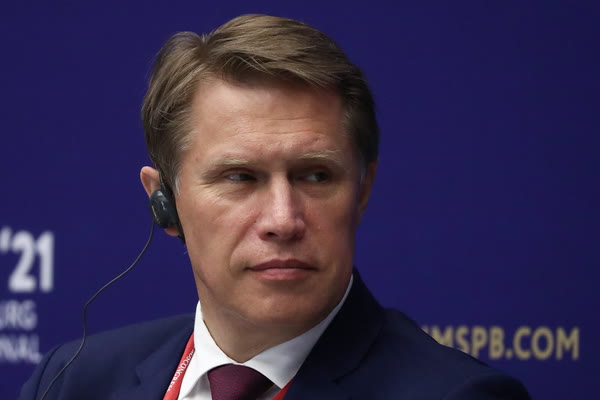
Stress Testing National Healthcare Systems
KEY CONCLUSIONS
A multivariate model is needed to determine the resilience of the healthcare system
“All developed nations have acted within a single paradigm – knowledge and management, operational management, and an understanding of what is happening. What we’re faced with doesn’t matter – it’s a system for collecting information: about sick people, hospitalized people, unfavourable outcomes, or something else […] This all needs to be taken into account. A multivariate model is needed. We can’t be in the paradigm of a single result. We need to take a lot more into account,” Russian Minister of Health Mikhail Murashko said.
“We tried to figure out how to make healthcare systems more sustainable and stronger in times of crisis. We found three answers. First, you need knowledge. Second, [you must have] an agreement about what resilience is. And third is the action by which you must be guided to achieve this goal,” London School of Economics Professor George Wharton said.
The healthcare system needs to use digitalization tools, including to inform the public
“Sometimes we need informatization and digitalization not simply because it simplifies [the work] process. We have long understood that it does not simplify our life, it will make it more transparent and effective,” Russian Minister of Health Mikhail Murashko said.
“We need to make the most of the available technologies. Digital technologies have undergone a revolutionary breakthrough due to the spread of coronavirus. India is one of the leading countries in the world in using digital technologies to track the spread of the epidemic and the spread of vaccinations. […] Rapid adaptability, public awareness, and other measures in the healthcare system that can help the maximum number of people, that’s what we’ve understood,” Ambassador of the Republic of India to the Russian Federation Venkatesh Varma Datla Bala said.
PROBLEMS
A lack of funding, skills, and preparedness for global emergencies are major challenges for the world’s health systems
“We have looked at how the healthcare system is built into the very system of existence and the life of society, especially in a situation similar to the 2020 pandemic. What did we find? Nothing surprising or sensational really. Overall, healthcare systems showed a lack of preparedness and a trend of underfunding. The healthcare system is seen as a cost centre, not an investment centre […] The next area is the difficulties in staff development,” London School of Economics Professor George Wharton said.
“We need to increase funding and our capacity […] We have calculated that at least 5% of gross domestic product [is needed for sufficient funding]. How much are we currently funding the Russian healthcare system? For COVID, it’s 3.5%, which is 33% less than needed. However, we are managing. But this does not mean that we will continue to carry this burden ourselves,” Higher School of Health Organization and Management Director Guzel Ulumbekova said.
SOLUTIONS
Countries around the world need to work together to cope with crises such as pandemics
“International cooperation and the exchange of experience and knowledge was an important factor. […] We need to agree on the terms and how to change this condition [the resilience of the healthcare system]. We have to agree on a common language. It is very useful for any research,” London School of Economics Professor George Wharton said.
“How can we make our healthcare systems sustainable? First, we must work together. We can’t do it alone. There must be help from the outside. We closed the borders and took certain political measures. We created a pan-European commission that could come up with a response. […] We must have the ability in such difficult, almost wartime-like times, to establish contacts and dialogue in terms of developing a vaccine,” WHO Regional Director for Europe Hans Henri P. Kluge said.
“We see that half of the companies want to hire people who believe in the future of the Russian market. [...] I don’t like that many countries were inclined towards COVID nationalism, where it was each person for himself. But the virus does not ask if you are American, German, or Russian. We must work together,” said Matthias Schepp, Chairman of the Russian-German Chamber of Commerce and Head of the Delegation of German Industry and Commerce in the Russian Federation.
Strengthening the autonomy of the pharmaceutical industry of countries around the world, creating a backup supply of drugs, and increasing the availability of drugs for the public
“We also need to ensure drug security. We are dependent on countries outside the pan-European union. We need to become more autonomous in drug production and drug security,” WHO Regional Director for Europe Hans Henri P. Kluge said.
“We are moving in the right direction, but we need to move even further, even faster. Both legislative and financial measures need to ensure the availability of innovative funds. It’s not just a matter of pharmaceuticals, it’s an entire ecosystem […] During the pandemic, patients face great difficulties. They can’t continue their treatment or access the necessary drugs and procedures,” said Asgar Rangoonwala, Managing Director for Emerging Markets at Janssen Pharmaceutical Companies of Johnson & Johnson.
“Manufacturing pharmaceuticals shouldn’t be a problem from a global perspective. The supply of medicines should be continuous. However, it’s essential to ensure the equitable distribution of medicines in times of crisis, when every country has a need for medicines and when the incidence of diseases is increasing. We need to secure our reserves,” STADA Arzneimittel CEO Peter Goldschmidt said.
For more information, visit the ROSCONGRESS.ORG Information and Analytical System.








